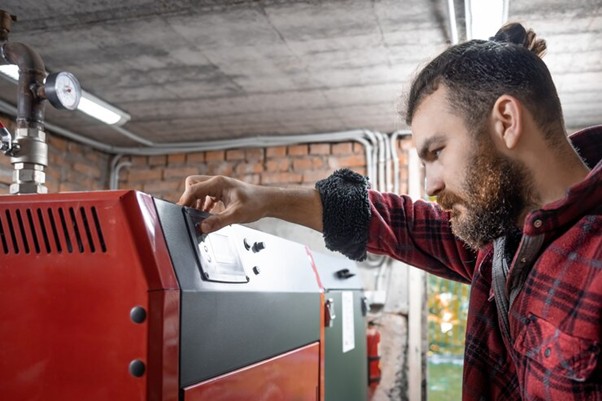As the days grow shorter and temperatures dip, preparing your home for winter becomes essential. One key component to keeping your household cozy during the colder months is your heating oil system. Whether you’re a seasoned homeowner or new to heating oil, ensuring your system runs efficiently can save you both time and money in the long run.
In this guide, we’ll explore practical tips for storing, ordering, and optimizing your heating oil supply. Companies like Romeo’s Fuel offer valuable services to ensure you’re prepared, but there’s plenty you can do on your own to make your home winter-ready. Let’s dive in!
Why Proper Heating Oil Management Matters
Heating oil systems provide reliable warmth, especially in regions prone to harsh winters. However, improper maintenance or planning can lead to unexpected issues like system breakdowns or running out of fuel at the worst possible time. Beyond comfort, effective heating oil management also translates to significant financial savings and reduces your environmental impact.
Failing to prepare your heating system adequately can result in higher energy bills, inefficient heating, and costly emergency repairs. By taking a proactive approach, you can avoid common pitfalls and keep your home running smoothly throughout the season.
Assess Your Heating Oil Needs Early
Evaluate Past Usage
Before the cold hits, take a look at how much heating oil you used last winter. Most oil delivery companies provide records of your previous orders, which can help you estimate how much you’ll need. This knowledge ensures you’re neither underprepared nor overspending.
If this is your first winter using heating oil, consult your supplier or neighbors with similar-sized homes for an estimate. The average household uses between 500 and 1,000 gallons of heating oil per winter, but factors like your home’s size, insulation, and climate all play a role.
Consider Home Improvements
If you’ve added insulation, upgraded windows, or sealed drafts, you may find that you need less heating oil than before. Conversely, if your household has grown or you’ve added new living spaces, your fuel needs might increase. Tracking these changes helps you better anticipate your requirements.
Plan for Weather Variations
Colder-than-usual winters can increase your fuel consumption significantly. Keep an eye on long-term weather forecasts and plan accordingly. It’s better to have a little extra oil than to risk running out during a cold snap.
Tips for Ordering Heating Oil
Timing Your Orders
Heating oil prices fluctuate throughout the year. Ordering in the off-season, typically during late summer or early fall, can often save you money. Waiting until the peak of winter may result in higher prices or even delivery delays.
By planning your purchases strategically, you can take advantage of seasonal price drops. Some suppliers also offer price-lock programs that allow you to secure a lower rate before prices rise.
Watch for Deals and Discounts
Many suppliers offer discounts for bulk orders, automatic delivery, or long-term customers. Keep an eye on these promotions to maximize your savings. Additionally, some companies provide loyalty rewards or referral bonuses, giving you further incentives to stick with them.
Establish a Delivery Schedule
For peace of mind, consider signing up for automatic delivery with your supplier. This service uses your household’s historical data and weather patterns to predict when you’ll need a refill, preventing you from running out unexpectedly. Even if you prefer manual ordering, setting reminders can help you stay on top of your oil levels.
Proper Storage of Heating Oil
Check Your Tank Condition
A well-maintained oil tank is critical for safe storage. Inspect your tank for any signs of rust, cracks, or leaks before the heating season begins. Regular maintenance ensures that your fuel stays uncontaminated and that your system runs smoothly.
If your tank is older or showing signs of wear, consider replacing it. Modern tanks are designed with improved safety features to minimize the risk of leaks or contamination.
Keep the Tank Full
Condensation can form inside a partially empty oil tank, especially in colder weather. This water can mix with your oil and lead to sludge, which might clog your system. Keeping your tank full minimizes condensation and prevents this issue.
Additionally, topping off your tank before freezing temperatures set in helps prevent gelling, which can restrict the flow of oil.
Store Fuel Safely
Ensure your heating oil tank is located in a safe and accessible area. It should be shielded from direct sunlight, moisture, and extreme cold. Proper storage prevents degradation of the oil and keeps your heating system in top shape.
If possible, install your tank indoors or in a sheltered outdoor area to protect it from the elements. Regularly check the area around your tank for debris or obstructions that could interfere with its function.
Optimizing Heating Oil Efficiency
Regular Maintenance of Your Heating System
A well-maintained heating system burns fuel more efficiently. Schedule an annual service appointment to clean and inspect the boiler or furnace. Replacing worn-out parts and cleaning filters can significantly improve your system’s efficiency.
Neglecting maintenance not only reduces efficiency but can also lead to costly repairs or even system failure. Preventative care is always more affordable than emergency fixes.
Adjust the Thermostat
Lowering your thermostat by even a few degrees can save a noticeable amount of heating oil over time. Use programmable or smart thermostats to automate temperature adjustments based on your schedule.
For example, you can set the thermostat to lower when you’re asleep or away from home and raise it only when you’re active indoors. This simple adjustment can reduce your fuel consumption without sacrificing comfort.
Insulate Your Home
Proper insulation in your attic, walls, and floors reduces heat loss, meaning your heating system won’t have to work as hard. Seal any gaps around windows and doors with weatherstripping or caulk to prevent drafts.
In addition, consider using heavy curtains or thermal window treatments to retain heat. These small changes can make a significant difference in your home’s overall efficiency.
Dealing with Common Heating Oil Problems
Preventing Oil Gelling
In extremely cold weather, heating oil can thicken or “gel,” which may clog your system. Add a fuel treatment or stabilizer to prevent gelling. Alternatively, consult your supplier about blending your heating oil with kerosene for better cold-weather performance.
Handling Water Contamination
Water contamination is a common issue caused by condensation in the tank. If you suspect water in your oil tank, contact a professional to drain the water and clean the tank. Installing a water separator can help prevent this problem in the future.
Addressing Sludge Build-Up
Over time, sludge can accumulate at the bottom of your tank, potentially clogging fuel lines and filters. Regular tank cleaning and the use of additives can help break down sludge and keep your system running smoothly.
Emergency Preparedness Tips
Keep Backup Fuel
Even with the best planning, severe weather or supply disruptions can cause delays in oil deliveries. Having a small backup supply on hand can prevent any uncomfortable interruptions in your heating.
Know Your Supplier’s Emergency Protocols
Check with your heating oil provider about their emergency delivery services. Knowing how to contact them and understanding their policies can save you from scrambling in a crisis.
Stock Up on Essential Supplies
Make sure your home is winter-ready by having items like space heaters, extra blankets, and weatherproofing kits on hand. These can help you stay warm if your heating system requires repairs.
Environmental Considerations
Choose Cleaner Heating Oil Options
Many suppliers now offer low-sulfur or bio-blended heating oil, which burns cleaner and reduces your carbon footprint. Switching to these options can help you heat your home more sustainably.
Properly Dispose of Old Oil
If you’re replacing your heating system or switching fuel types, ensure that any leftover heating oil is disposed of properly. Contact a professional service to handle the disposal in an environmentally friendly manner.
Conclusion
Preparing your home for winter doesn’t have to be a daunting task. With careful planning, proper storage, and routine maintenance, you can keep your heating oil system running efficiently and your home comfortably warm all season long. Remember, a little effort now can save you from bigger headaches—and costs—later.
By implementing these tips and staying proactive, you’ll enjoy a cozy and worry-free winter. From monitoring your oil levels to optimizing your home’s efficiency, you’ll be ready to face even the harshest winter with confidence.






